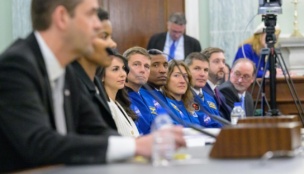The FAA is trying to hold commercial launchers in the US to a higher standard to prevent debris creation. Yesterday, the agency proposed a new rule that, if approved, would require launch companies to dispose of spent upper stages.
The debris problem
US regulatory agencies have been taking steps recently to address the growing debris problem and reduce the risk of collision in orbit, including an FCC rule last fall that satellites must be deorbited within five years.
Launchers have gotten better over time at responsibly disposing of upper stages once they’ve done their duty and deployed their payloads to orbit.
- ESA’s latest annual Space Environment Report found that up to 90% of rocket bodies expended in LEO this decade attempt to comply with orbital debris mitigation guidelines, while up to 80% have been successful—up from 20% in 2000.
- Still, a 2021 assessment of the most potentially hazardous objects in orbit showed that the top 20 are spent upper stages.
The FAA’s proposed solution
In its proposed rule, the FAA would require commercial launchers to select one of five options for disposal before they launch. Those five options:
- Controlled reentry
- Move to a higher graveyard orbit
- Send on an Earth-escape trajectory
- Retrieve through active debris removal within five years
- Uncontrolled atmospheric disposal (i.e., let it burn up upon reentry)
US government-affiliated missions already require that upper stages are responsibly discarded, the agency noted in a release, and this rule would align commercial requirements with those higher standards already generally observed in the domestic launch market.
The rule has not yet been entered into the Federal Register, and once it is, there will be a 90-day public comment period on the proposed regulation.




